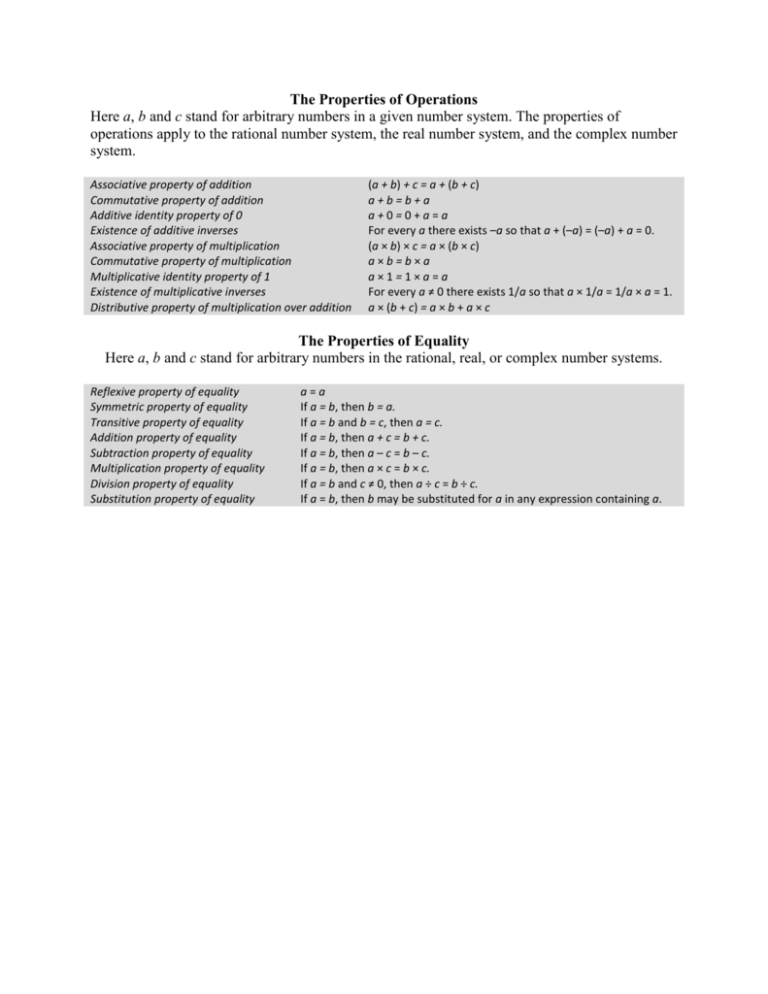Properties of Operations and Equality Reference Sheet
advertisement

The Properties of Operations Here a, b and c stand for arbitrary numbers in a given number system. The properties of operations apply to the rational number system, the real number system, and the complex number system. Associative property of addition Commutative property of addition Additive identity property of 0 Existence of additive inverses Associative property of multiplication Commutative property of multiplication Multiplicative identity property of 1 Existence of multiplicative inverses Distributive property of multiplication over addition (a + b) + c = a + (b + c) a+b=b+a a+0=0+a=a For every a there exists –a so that a + (–a) = (–a) + a = 0. (a × b) × c = a × (b × c) a×b=b×a a×1=1×a=a For every a ≠ 0 there exists 1/a so that a × 1/a = 1/a × a = 1. a × (b + c) = a × b + a × c The Properties of Equality Here a, b and c stand for arbitrary numbers in the rational, real, or complex number systems. Reflexive property of equality Symmetric property of equality Transitive property of equality Addition property of equality Subtraction property of equality Multiplication property of equality Division property of equality Substitution property of equality a=a If a = b, then b = a. If a = b and b = c, then a = c. If a = b, then a + c = b + c. If a = b, then a – c = b – c. If a = b, then a × c = b × c. If a = b and c ≠ 0, then a ÷ c = b ÷ c. If a = b, then b may be substituted for a in any expression containing a.